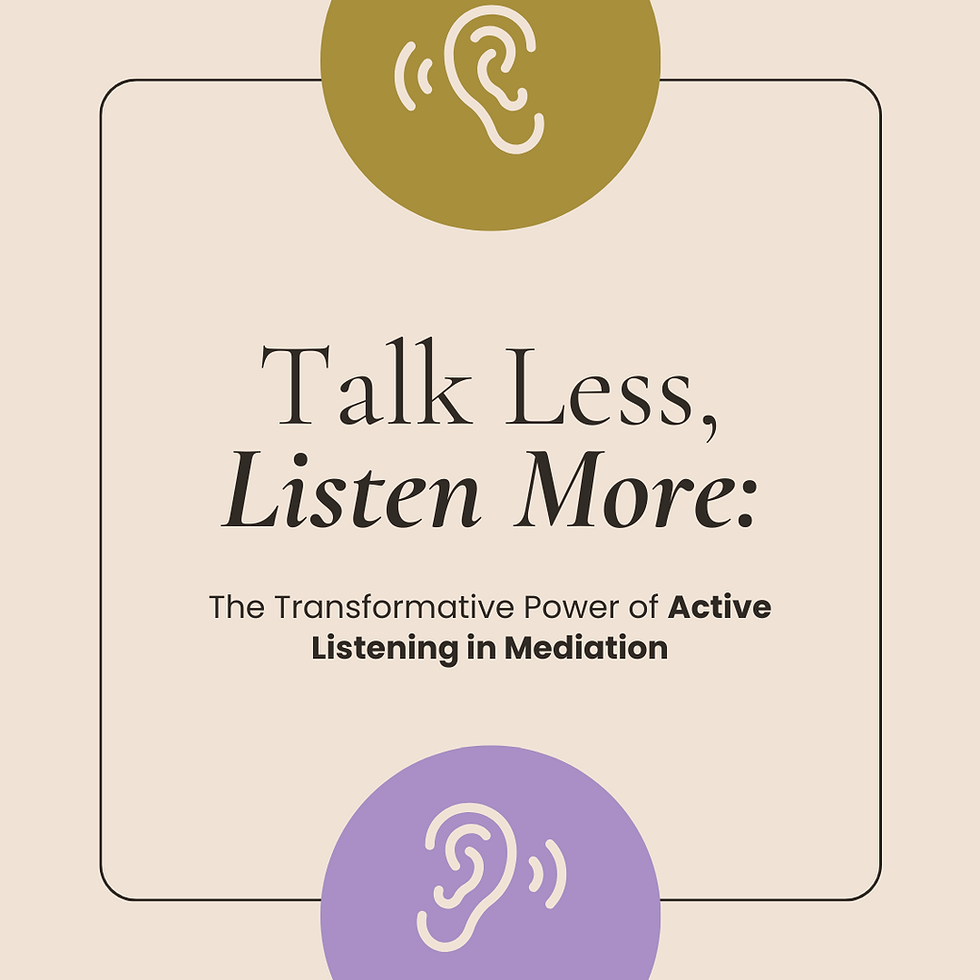Walking the Neutral Line: The Power of Impartiality in Family Mediation
- Jana de Waal

- Apr 14, 2025
- 2 min read
In the emotionally charged world of family law, tensions run high and trust is often in short supply. That’s why one of the most powerful tools in a mediator’s toolbox isn’t found in their script, their education, or their legal knowledge—it’s in how they show up.
Mediators must walk a delicate and deliberate line: the line of neutrality and impartiality.
This may sound obvious or procedural, but it’s anything but passive. Impartiality must be intentional. It must be visible. And when practiced effectively, it becomes the foundation for safety, trust, and ultimately, resolution.
Why Impartiality Matters So Much in Family Mediation
Unlike many legal settings, mediation doesn’t assign a winner and a loser. Instead, it relies on the parties themselves to work toward a shared solution. That only works if both feel heard, respected, and treated equally.
If a mediator appears to favor one side—even unintentionally—it can trigger distrust, defensiveness, and disengagement.
Neutrality means:
Not taking sides, even if one party is more reasonable.
Managing power imbalances without becoming an advocate.
Asking questions equally and offering the same time and attention to both parties.
Avoiding statements or behaviors that could be interpreted as judgmental or directive.
In short: A mediator’s neutrality is the anchor that keeps the process steady—especially when emotions start to swirl.
Trust Is Built on Perception
A party doesn’t have to say they think the mediator is biased. Often, you’ll see it in their body language, withdrawal, or sudden resistance to cooperate. That’s why it’s not enough to be neutral— a mediator must appear neutral too.
Here’s what that looks like in practice:
Equal eye contact and attention in joint sessions.
Balanced time in caucus rooms.
Using neutral language when reframing emotionally charged statements.
Avoiding leading questions or suggestions that could appear as advice.
Being mindful of unconscious bias or assumptions.
Impartiality ≠ Inaction
Being neutral doesn’t mean being hands-off. In fact, staying impartial sometimes requires more intervention—especially when power dynamics are skewed.
For example, if one party is dominating the conversation or using intimidation tactics, the mediator may need to step in to level the playing field. This isn’t bias—it’s balance. Creating space for both voices is part of the job.
A Cornerstone of Integrity
Mediation is based on voluntary participation, informed consent, and mutual trust. None of these things can exist without impartiality. By staying neutral, the mediator reinforces a central truth: this is a space for resolution, not retribution. When both parties believe the process is fair, they are far more likely to participate fully and move toward meaningful agreement.




Comments